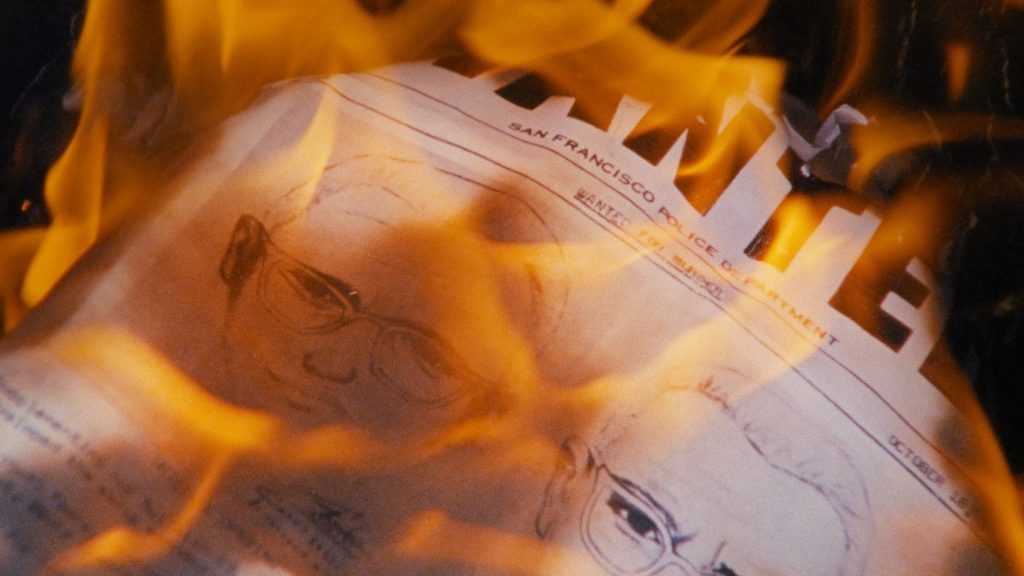
Directed by: Charlie Shackleton
In the early moments of Charlie Shackleton’s “Zodiac Killer Project,” we see a parking lot through a stationary camera that slowly zooms in and out. In these moments, Shackleton is narrating, describing an intense encounter a California highway patrolman has with the purported Zodiac Killer. Shackleton describes the event in great detail, moment by moment, explaining how he would have filmed this scene, ratcheting up the tension and setting the tone for the film. Why are we listening to this scene being described rather than seeing the scene itself? Because at the last moment, in the throes of pre-production, Shackleton has lost the rights to adapt Lyndon E. Lafferty’s book “The Zodiac Killer Cover-Up: The Silenced Badge” into a true crime documentary.
The results of what Shackleton’s film eventually becomes is fascinating and entertaining, pivoting to a unique spin on the true crime doc as he simultaneously describes what his film would have been while exploring and, at times, criticizing the genre to a masterful degree. Much of Shackleton’s critical analysis lies in his exploration of the “sameness” of true crime documentaries, citing and poking fun at tropes from similar opening credits, the use of “evocative B-roll,” and the talking head interviews themselves. Shackleton supplements these observations with well edited examples from true crime docs throughout the years that illustrate the tropes. Though it isn’t always explored to incredible depths, some of the more interesting points Shackleton makes are in reference to the ethical concerns of these docs, with particularly insightful comments on the cultural phenomenon “The Jinx” series from 2015.
There’s also a highwire act going on where Shackleton doesn’t have the rights to the book, therefore most rely on stories with multiple accounts to describe the film he would have made. He’s still able to provide a cohesive presentation of what could have been, while using the more specific moments as opportunities to smartly provide commentary on the genre and its often fascinating and powerful appeal.
The presentation of the film is unfussy, featuring long, often unbroken takes of potential filming locations interspersed with B-roll footage with Shackleton talking over the entire duration of the film. This approach feels a little bit more akin to a video essay, and while it may be too minimalistic for some, Shackleton’s narration more than powers the film. His dry British wit is laid back and laugh out loud funny at times. He’s clearly having a great time, often pausing to point out humorous pieces of footage or to laugh at something he said.
It all culminates in an ambitious swing that really works. It’s a hilarious critical analysis that explores a genre that has potentially hit a saturation point, while simultaneously having the self awareness of how even Shackleton himself couldn’t help but fall right into the tropes himself. “Zodiac Killer Project” is a must watch for anyone who finds themselves frustrated by the constant churn of cookie-cutter streaming-era content and for fans of the genre who aren’t afraid to laugh at themselves.
